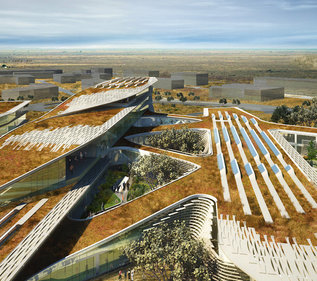On health issues, the Vice President said health was critical to the development of human capital and appreciated the cooperation with India in the area. “My country would like to see our cooperation deepen in the areas of training and education for health professionals. In addition, Botswana welcomes Indian Pharmaceutical companies to invest in drug manufacturing and related industries in our countries,” he said.
On another issue, Vice President Masisi said peace and stability were the cornerstones of sustainable economic development, adding that he was delighted that the Africa-India framework for strategic cooperation document addressed the issues.
He said Botswana was concerned by threats to peace and security on the continent which he said were characterised by the dramatic rise in instability, insecurity and violent conflicts. “In this regard, we must urgently renew our efforts towards effective implementation of the African Peace and Security Architecture and the African Union counter terrorism framework. We therefore look forward to collaborating with India to address this threat,” he said. He said Botswana believes that inclusive governance, democracy, respect for human rights and the rule of law should fundamentally form the bedrock for sustainable development efforts.
On climate change, Vice President Masisi told the summit that it has become one of the greatest environmental challenges the world was facing, adding the sub Saharan Africa had disproportionally borne the brunt of the impact of climate change even though it contributed least to it. “Botswana strongly supports the collective approach by the international community in addressing the impact of climate change,” he said.
As emerging economies, Vice President Masisi said there was need to find the right balance between curbing industrial emissions and the industrialisation process in order to reduce poverty and economic marginalization of citizens.
Earlier, Mr Masisi said the summit’s theme “Partners in Progress towards a Dynamic and Transformative Development Agenda” was appropriate as it speaks directly to the continent’s Agenda 2063 which was developed with a transformative development agenda in mind in order to achieve the continent’s vision of a united and prosperous Africa.
To demonstrate commitment to continental vision, Vice President Masisi said the Southern African Development Community (SADC) has re-aligned its development priorities and programmes in order to accelerate social transformation and development in the region. He said in the realignment, industrialisation was placed at the centre stage, adding that the SADC Industrialisation Strategy and a Roadmap sought to accelerate industrialisation through economic and technological transformation at national and regional levels through beneficiation and value addition to the region’s abundant natural resources. Vice President Masisi also said SADC region was in unison with the rest of Africa in calling for the reform of the United Nations Security Council.
On October 28, the vice president held a bilateral meeting with India Prime Minister Narendra Modi and according to media reports the leaders were treated to a dinner where they turned up in specially tailored Indian long coats and safa, the colourful headgear.
At the end of the summit, two documents were adopted - the Delhi Declaration 2015 and the India-Africa Framework for strategic cooperation


